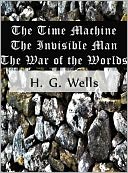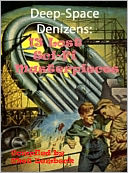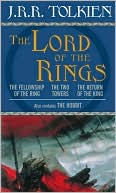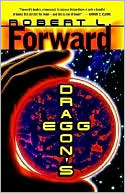Science fiction and fantasy – forever joined on book
store shelves. An accident?
At their
extremes, no two genres could be farther apart: hard science
versus wizards poised, amid Medieval settings, to cast their
direst spells.
 Yet
SF and fantasy share a common theme: a sense of Wonder. Yet
SF and fantasy share a common theme: a sense of Wonder.
They
take us to other worlds, other times – the distant futures
of H.G.
Wells and
Robert Silverberg, Tolkien's
Middle Earth, Dennis
McKiernan's Mithgar, Robert
L. Forward's intelligent Cheela, inhabitants of a neutron
star.
Science
fiction and fantasy. At their best, both take us on whirlwind,
mind-stretching trips into alternatives.
Distant
futures, distant pasts, where huge ships travel between stars
– or wizards can darken the noonday sky with the spells
they cast.
 Glimpses
of worlds we will never see in our waking life. But we can
visit them at will, at our leisure. Glimpses
of worlds we will never see in our waking life. But we can
visit them at will, at our leisure.
And could
magic just possibly be another form of science? Wizards have
their spells, after all, no less rigid than the formulae by
which elements combine to create matter as diverse as common
table salt – and human beings.
If one
of our hunter-gatherer ancestors could be fast-forwarded to
our modern world, wouldn't she (or he) attribute our automobiles
and computers to … magic?
Besides,
at the sub-atomic level, particles almost unimaginably tiny
constantly violate every “rule” that science has
devised to explain the visible world around us.
 Neutrinos
– particles with almost no mass, no charge, only rarely
interacting with anything including each other – can,
when traveling through space, change from one kind of neutrino
to another. Neutrinos
– particles with almost no mass, no charge, only rarely
interacting with anything including each other – can,
when traveling through space, change from one kind of neutrino
to another.
An electron
can exist in two places at once.
Photons
can be “entangled” – meaning no matter how
much distance lies between two photons, they are linked to
each other. A change in one of the linked set is instantly
reflected in the other.
Einstein
postulated entanglement in 1935 – then dismissed it
as an “absurdity.”
It not
only isn't absurd, its existence has been verified –
and has practical applications in fields including computing
and cryptography.
 It
also means that teleportation is possible, at least for subatomic
particles. It
also means that teleportation is possible, at least for subatomic
particles.
Then
there's Heisenberg's uncertainty principle, which states that
you can't measure either of two related quantities of a subatomic
particle – such as where it is, and how fast it's traveling
– without creating uncertainty in the other quantity.
Tracking the speed of the particle for example, means it's
already gone; you don't know where.
We used
to laugh at alchemy, the forerunner of modern chemistry. Those
poor saps, we'd say, trying to create gold from lead.
Yet we
now know the alchemists had the right idea. Elements do transform
into other elements – and combine to create everything
from suns and stars to planets to the trees in our back yards
to … us. And it all started with a big bang –
and hydrogen. Every other element that exists comes from the
hearts of suns.
 The
alchemists had the right idea. They just didn't realize that
the process requires more energy than they could create with
test tubes and retorts. The
alchemists had the right idea. They just didn't realize that
the process requires more energy than they could create with
test tubes and retorts.
Shakespeare,
in Hamlet, puts into his title character's mouth the line,
“There are more things in Heaven and Earth, Horatio,
than are dreamt of in your philosophy.”
Science
fiction and fantasy settle in our minds, our hearts, our souls,
and give us the raw materials for our dreams.
|